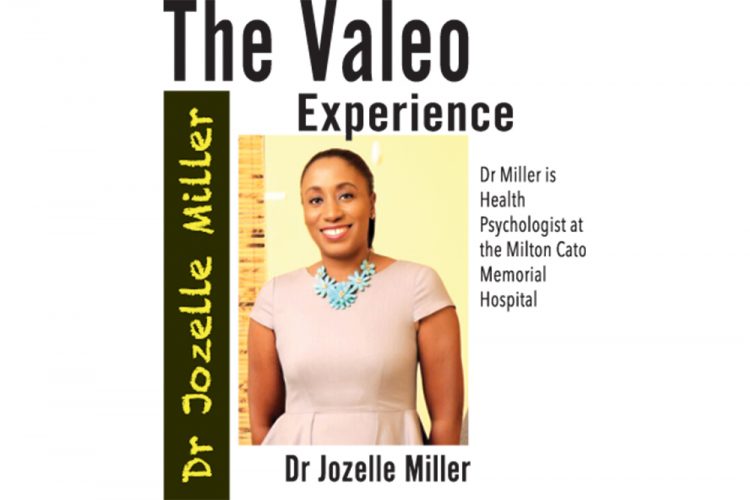Making hard decisions

IT IS A normal part of life to make decisions on a daily basis. These decisions can be life-altering such as deciding to have a surgery, or totally trivial as deciding to wear a pink dress versus a white dress.
Most of us are able to comfortably make decisions but there are times we may become stuck based on the implications of that decision; the available information for or against that decision; the support system in place to buffer the effects of your decision and our tendency towards self doubt.
Many missteps in decision-making can be chalked up to cognitive bias. That’s our tendency to think a certain way without even realising it.
Here’s a simple example: Have you ever avoided switching Internet providers, even though you were unhappy with your current service? Something called status quo bias might be to blame. That’s our tendency to stick with what we know, instead of choosing something new and different. We see the alternative as a risk or just not worth the trouble, even if it might be better. Without realising it, we can become overly resistant to change.
Another bias which affects our decision making ability is called ‘Anchoring Bias’. To understand how anchoring works, imagine you’re shopping for a microwave; the one you like is priced at $3000.
Next, imagine the sales representative offers you a discount. The microwave is now $2000, a full thousand dollars less. Sounds like a can’t-miss opportunity, right? Not necessarily. Anchoring suggests that we rely too heavily on the first thing we hear (in this case, the initial price of the microwave). That’s what makes the discount so appealing, but it shouldn’t be the deciding factor. There are also more objective things to consider, like how much the microwave is really worth, and whether you can find a better price elsewhere.
If you’re not careful, the anchoring effect can weigh you down.
Another significant bias that affects our decision making; this is ‘Choice Overload’. Cognitive biases aren’t the only things that can affect decision-making. More and more studies show that stress can have an impact—both on the quality of our decisions and on our ability to make them. Take this wellknown study about jam.
At an upscale food market, researchers set up two displays offering free samples of jam. One gave customers six different flavours to choose from; the other gave them 24.
The larger display attracted more people, but they were six times less likely to actually buy a jar of jam (compared to those who visited the smaller display). The reason for this is a phenomenon now known as choice overload.
Choice overload can happen any time we feel overwhelmed by the sheer number of options. We have such a hard time comparing them that we’re less likely to choose anything at all. As in the jam example, many of us would sooner walk away empty-handed than deal with the stress of choosing from such a large selection.
Making decisions will always be difficult because it takes time and energy to weigh your options. Things like second-guessing yourself and feeling indecisive are just a part of the process. In many ways, they’re a good thing—a sign that you’re thinking about your
choices instead of just going with the flow. That’s the first step to making better, more thoughtful decisions.
Here are three of five suggestions to help you make tough decisions:
Look beyond the moment
A sure sign of immaturity is to make choices with only the present moment in mind. Tough decisions require looking not only at an immediate gain from a particular choice but also its potential long-term benefits. Sometimes we have to pay a small price in the short term, but the long-term gains could far outweigh the immediate sacrifices.
Evaluate a “head choice” versus a “heart choice”
A “head choice” is a decision that makes a lot of sense on paper, while a “heart choice” is one that speaks to your soul and meets a need or longing.
Heart choices envelop your passion and emotion. Often, these choices are made without careful consideration because they feel good at the time and bring an emotional high, albeit short-lived.
A bad relationship mistake can be made overnight because you only thought of the short-term benefits. Yet, someone who chooses a spouse from the “head choice” perspective alone aims to check off certain traits and ideals from a list and overlooks the importance of an emotional or spiritual bond. The best decisions often have both emotional rewards and make rational sense as well.
Consider if you could survive if disappointed.
Once you decide which path to take and you pursue it with all your might, what if you realise you made a mistake? Can you survive even if you feel like you made a wrong choice?
It is important to weigh the cost of failure – not just the financial cost, but the emotional devastation and the time and energy lost.
While some disappointment comes with many decisions we make, it is important to assess our resiliency and coping skills when things don’t work out the way we had hoped. If you choose a path that would devastate you if its outcome were unsuccessful, it is probably not a wise choice. Think through the “what if” questions before taking the plunge forward.
We will conclude next week.











